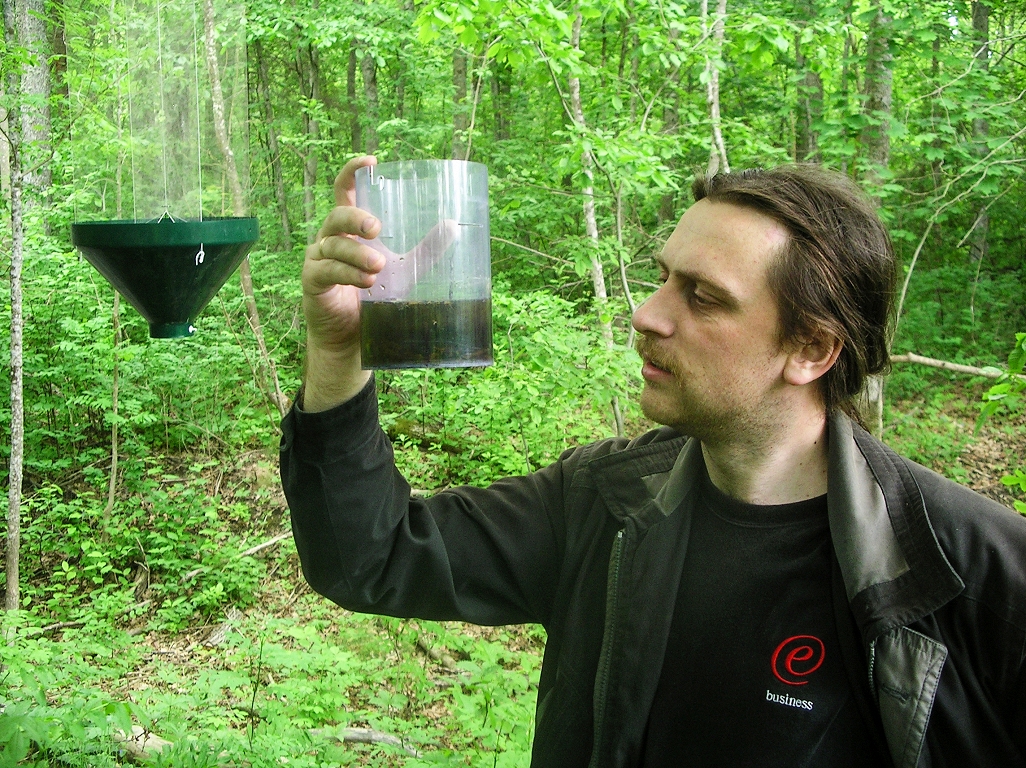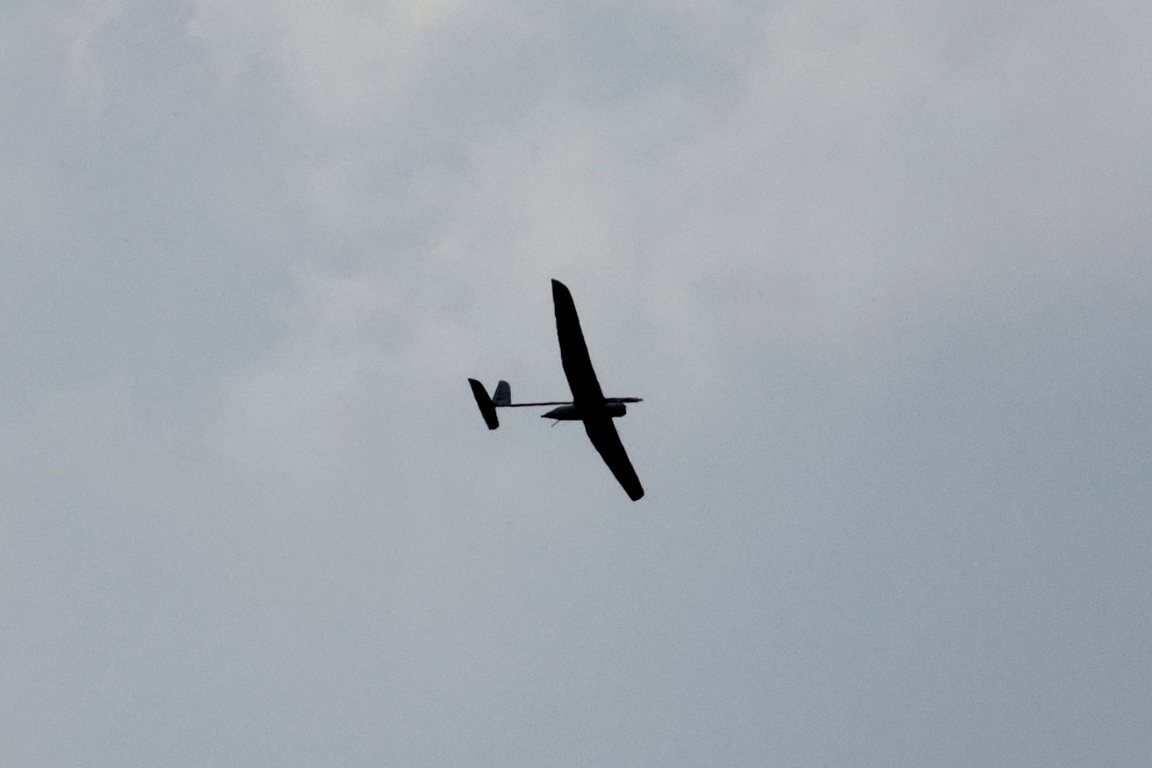Reveals new insect species / day

Interest in the insect world for Dmitry, Ellnov has been present since childhood. Over the years, this passion has grown into an entomologist’s profession and work at the British Museum of Natural History. Along with this, he is a leading researcher at Daugavpils University, as well as a researcher at the Institute of Biology at the University of Latvia. He also cares about environmental issues in nature research.
How did your interest in nature and insect research began?
I started interest in nature from early childhood. I remember her grandmother subscribed to various magazines about nature and animals. As she read them, it was also interesting for me to swell them. We watched the TV program together Animal world. When I was little, I preferred to study animal pictures or watched movies about them than playing with toys. Thanks also to the parents who guided me to the Riga Zoo a couple of times a year.
In turn, the interest in insects arose spontaneously. At the age of six, I noticed an interesting beetle on the street in Riga, which I then put in a jar and took home. When I grew up a little, I realized that I wanted to create my own insect collection and become a forester, because at that time I did not know the concept like « biology ». Next, school years, university. I still have an insect collection at home that I have not yet given any museum or university.
One of your jobs is the Museum of Natural History of the British. How do you go as a researcher everyday?
The work is versatile. Of course, it is the main duty to take care of the state of the museum’s collection and supplement. It is unlikely that people think about it, but our museum copies are not only scientific but also a great historical and cultural value. In fact, the national and international heritage is stored here, as the museum’s collection has copies that Darwin has collected. There are also copies collected before Darwin – in the early 17th century. It is not just a beetle or a butterfly on the needle, it all comes in the inheritance: in what circumstances, where and how this copy has come to us and how it is found where it is found right now. Similarly, they often have to communicate with researchers from around the world on a daily basis, they ask for information or want to send them copies for research purposes. It has to be said that my colleagues from Latvia are very active, we have joint research projects.
And all the other things less related to museology, but more with environmental issues. There are also expeditions from time to time. Much come to write scientific articles, as well as reviewing the publications of other colleagues in international magazines. My job is good with the fact that at almost any time I can choose what I want to do more right now. There are priority responsibilities, however, I can choose whether to sit down at the microscope and describe something or perform some audit.
In research, you are particularly interested in tropical and subtropical regions, where you have repeatedly gone on expeditions and discovered new insect species. Which of the expeditions so far have you remained most in memory?
There have been many such expeditions. Probably the researcher’s mind works a little different from others. People usually remember important moments in life, but researchers remember all kinds of seemingly unnecessary details. For example, I remember, for example, with my friends from the Latvian National Museum of Natural History in the childhood of the Zoological Circle, in the late 1980s, we went on expeditions around Riga. Without difficulty, looking at my beetles in the collection, I remember that I found it on the strain, sitting on it, but I caught this by hand when it flew me. Accordingly, there are also different moments in the tropics. One is what we study for our topics or environmental protection, but the people we encounter on our way are completely different. In every work I published after the expedition, I try to say thank you to the locals who accept, help sometimes disturb, but it doesn’t matter. At that moment we are a team.
I remember in 2015 I was on an expedition in the mountains of New Guinea. With my longtime colleague from Hungary, we stopped in a small village, where there is only a few houses and police, because New Guinea is considered a relatively dangerous area – there is still fighting for autonomy from Indonesia. We are waiting for the car that will take us further. Next to us, a local of the Hatamu tribe sits down. We start the conversation: what we do here, where we are. When I tell me that from Latvia, he answers me that Latvia is a very good country. Here in London, when some colleagues ask what they know about Latvia, some will not really say anything, so I thought this man was just decent. But it turned out that he had really attended Riga by participating in an international dance event with his collective performing with his traditional dances. It really was a surprise!
You are participating in the review of the European and World Red Book, with particular focus on endangered beetles. What should we do to prevent the number of insects from breaking in the future?
One important moment is the relationship between people in society. If a tooth hurts, we are looking for a good doctor and listen to us when he says to us, « Clean your teeth twice a day and you won’t have caries. » When it comes to environmental protection, very often environmental experts are not taken seriously because it already greenso it speaks. In environmental issues, business industry feel more erudite than biologists themselves. Need to listen to what professionals say because of extreme green There are really few. There are actually no such professionals. And if an institution, such as the University of Latvia, believes that it is bad in the industry, then it really is. This is no exaggeration.
When it comes to practical things, this is a difficult issue, because every country cares about the economy, growth, which means we want to produce and sell more. But do you need more? In Europe, too many plant protection products are used in agriculture, which cause environmental damage. It is often believed that this is my field, only here I will smoke the insecticides and get rid of the pests, not thinking that these substances will later go to the edge of the forest, where pollinators will die, which is important for the same field to yield. Each landlord has to look at what is happening around and what land we will leave for other generations. What each of us is doing affects others. Before cutting an old, hollow tree in the park, we think, whether we can fix it, cut it only to the old branches, because this tree serves as a home to a large number of living organisms. Those stuff needs to be seen, they need to think about them, then everyone will do better. And that benefit is both material and intangible. Nature gives us pollinators, beetles that work for free but benefit to all of us.
What other projects are on your agenda?
Works a lot. Currently I’m preparing for another expedition to New Guinea, which hopefully will happen this year. Documents and permits are currently underway. The expedition is intended for the Torichelli Mountain Massive in northern New Guinea. It is one of many white spots in the region. Little information. It is known that there are several endals in the mountains – three tree species, so discoveries are expected in the invertebrates. This expedition is important because entrepreneurs from China and Malaysia want to develop wood mining and mining there. The local tribes have asked researchers to justify why Torichelli in the mountains should create a protected area, because papuasi cannot imagine themselves without the forest. The expedition is planned for a month.







